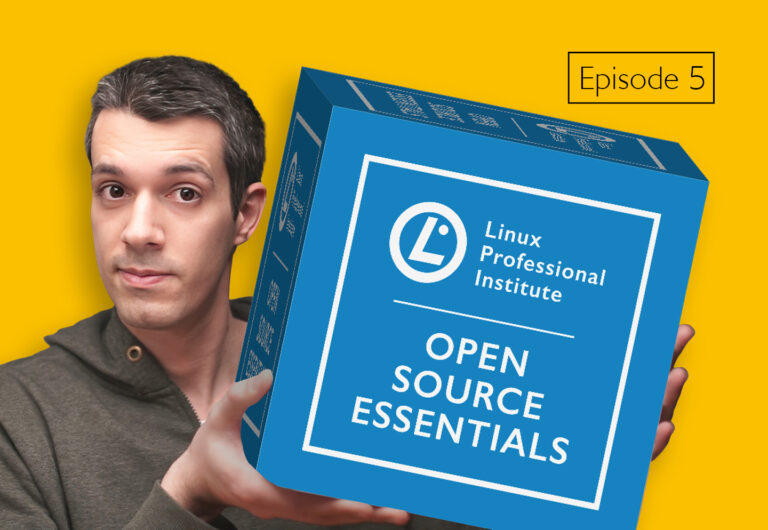From Passion to Profession: Morrolinux’s Journey in FOSS

Is turning your passion into a profession possible? According to my experience, the answer is: YES.
Does turning your passion into a profession mean you are just taking a shortcut around the tedious life journey of going to school and “working your way up” through low-level jobs? According to my experience, the answer is: NO.
Does turning your passion into a profession probably mean you are going to have a sort of life-changing experience? According to my experience, the answer is: Yes.
I am Moreno Razzoli. Maybe you know me better as Morrolinux. This is the story of how I turned my passion into a profession. And, yes: my passion was, and is, and I am quite sure will be for a while longer, Linux.
Since I started my journey with Linux in 2008, it has been a path of constant learning and exploration. As a self-taught enthusiast initially, I grappled with the complexities of Linux, driven by a deep curiosity and a passion for technology. Every problem I encountered became a lesson, shaping my understanding of the operating system. This phase of self-learning was critical, as it laid the groundwork for my later professional endeavors.
Building up from an Academic, No, Technical Education
Post-graduation, as I stepped into the role of a system administrator, I was handling mixed environments of Windows and Linux systems. This was a practical application of my skills, blending my Linux expertise with real-world scenarios. It was during this time that I realized the importance of structured learning. Deciding to formalize my knowledge, I pursued and achieved LPIC-1 certification through the Linux Professional Institute
This certificaitonwas more than just an academic milestone. The LPIC-1 certification marked a significant turning point, taking me beyond just practical applications to a deeper understanding of Linux. It was not merely about enhancing technical proficiency; it was about gaining a comprehensive insight into the workings of an open source operating system. This understanding is pivotal in the open source world, because it directly influences the way software is utilized, integrated, and shared across diverse platforms and environments.
My university education in Computer Science, after my first experiences with Linux and FOSS, was another significant chapter in my journey. Here, I delved into fundamental computing
concepts such as software architecture, client-server models, and cloud computing. This phase was complementary to what the Open Source Essentials program offers, which is a broad understanding of the non-technical aspects of open-source software, crucial for any professional in the field.
Today: Freelancing in FOSS
Transitioning to teaching and content creation, I embraced the role of an educator and advocate for open source. My work as an LPI Training Partner and on my Morrolinux YouTube channel reflects the ethos of the Open Source Essentials – emphasizing community contribution, knowledge sharing, and open-source advocacy. It’s a testament to the community-driven nature of open source, where sharing knowledge and experiences enriches the entire ecosystem.
In my freelance career, I tried to embrace the essence of open source not only as a tech enthusiast but as a strategic business decision. This journey has been about more than just adopting Linux; it’s about deeply understanding the goals and principles behind open licensing.
I’ve explored various business models that thrive in the open source ecosystem, examining how they generate revenue while contributing valuable software and content. My experience has shown the significant role open source plays in larger tech products and services. These explorations have brought me to recognize the nuanced impact of licenses on software development and business strategies.
By focusing on what clients seek in open source, I’ve navigated the cost structures and investments necessary for developing in this space. It has been a practical application of the principles I’ve learned — a testament to the sustainable and versatile nature of open source as a business model.
To summarize my whole public activities in a few words: The challenge was to find the right voice for being entertaining while keeping professionalism and consistency. I wanted to share my passion, not to make statements or boring lessons (and, by the way: Video tutorials do not work!). The other double-edged thing is about being a one-man band: It offers a lot of freedom, but a lot of responsibility and pressure as well.
In refining my approach to open source, I’ve naturally aligned with the ethos at the core of the evolving open source landscape. This journey goes beyond mere adoption; it’s an immersion into a culture where sharing, collaboration, and community drive technological and ethical progress. Through this lens, I’ve navigated the complexities of open source licensing and business models, embodying the principles that foster a more innovative, inclusive, and sustainable tech ecosystem.
Today and Tomorrow
Reflecting on my experiences, I see how they resonate with the essence of the open source movement. My journey, a path determined by technical prowess and a commitment to community engagement, exemplifies the dynamic and highly influential nature of open source software. This path isn’t just about professional advancement; it’s a continual process of learning, sharing, and shaping the future of open source technology. Every step I take contributes to the broader community, paving the way for new enthusiasts and professionals to explore the limitless possibilities of open source.
Embarking on this journey with open source isn’t just about acquiring technical skills; it’s about embracing a philosophy that nurtures innovation and collaboration. The Linux Essentials and Open Source Essentials programs offer gateways into this vibrant world, providing the foundational understanding needed to appreciate its spirit and contribute meaningfully. These programs are not merely educational milestones but stepping stones toward becoming an integral part of a community that’s shaping the future of technology.
